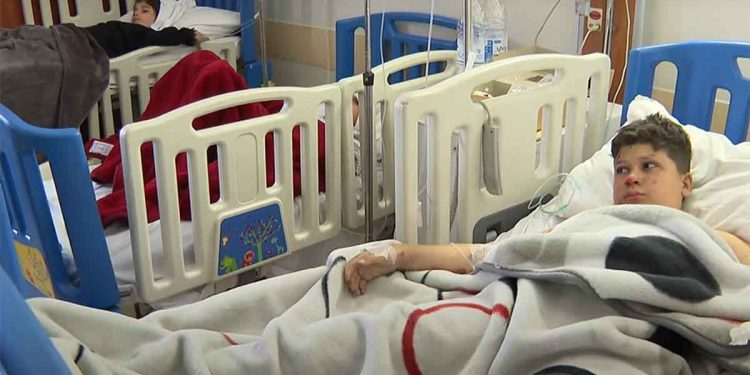Hospitals across the Gaza Strip are facing imminent collapse as the ongoing Israeli blockade continues to restrict the entry of fuel and essential medical supplies, according to warnings issued by the local Ministry of Health. The health system, already strained by months of war and bombardment, has reached critical levels, placing thousands of patients, including children and the elderly, at severe risk.
Medical authorities confirmed that Al-Shifa Hospital, the largest in the enclave, was forced to completely suspend kidney dialysis services last Tuesday due to fuel shortages. This disruption threatens the lives of hundreds of patients dependent on life-saving treatments. The crisis has escalated further with the continued power outages and an acute lack of operational equipment, pushing the entire healthcare infrastructure towards a full-scale breakdown.
The Ministry stated that the situation remains within unprecedented emergency indicators, driven by the constant flow of critical injuries and the ongoing reliance on power-dependent medical devices. With no stable electricity supply, hospitals are increasingly unable to deliver even the most basic levels of care.
Israeli authorities have maintained a policy of permitting only limited quantities of fuel into the Strip, quantities insufficient to operate hospital facilities for more than a few hours a day. This deliberate restriction has paralysed emergency services and rendered healthcare teams incapable of delivering adequate care.
The Ministry of Health reiterated its urgent appeal to relevant international bodies to intervene and apply pressure on Israel to allow full and regular entry of fuel and medical supplies. It stressed that the healthcare system in Gaza is on the brink of collapse amid one of the most devastating chapters of conflict in recent history.
The current crisis follows repeated warnings issued in previous months regarding the progressive degradation of healthcare services. The compounded effect of infrastructure damage, blockade policies, and lack of supplies has severely impacted hospital functionality, leaving many facilities inoperable.
Since March, Israeli-imposed restrictions on humanitarian access have intensified, blocking nearly all deliveries of fuel and aid, and closing hospitals in the face of increasing civilian casualties. This has formed part of a wider pattern of collective punishment, with the siege used as a tool of gradual, deliberate harm.
Despite ongoing ceasefire talks and negotiations, Israeli forces resumed full-scale military operations across Gaza on 18 May. These renewed hostilities have raised further concerns over the continued targeting of healthcare infrastructure, which remains protected under international humanitarian law.
Since 7 October 2023, the conflict has claimed the lives of over 193,000 Palestinians, with the majority being women and children. More than 10,000 people remain missing under the rubble, and the health system has been overwhelmed by the scale of the injuries and the collapse of services. The situation is described by local officials as catastrophic, with no functioning system of justice or accountability, and with international legal mechanisms unable to respond effectively to the humanitarian emergency.
Gaza’s health crisis is now emblematic of the broader devastation caused by the ongoing conflict, marked by mass displacement, starvation, and systemic destruction. The denial of fuel and aid continues to exact a lethal toll on civilians, raising urgent concerns over violations of international law and the failure to uphold the principle of medical neutrality.



























